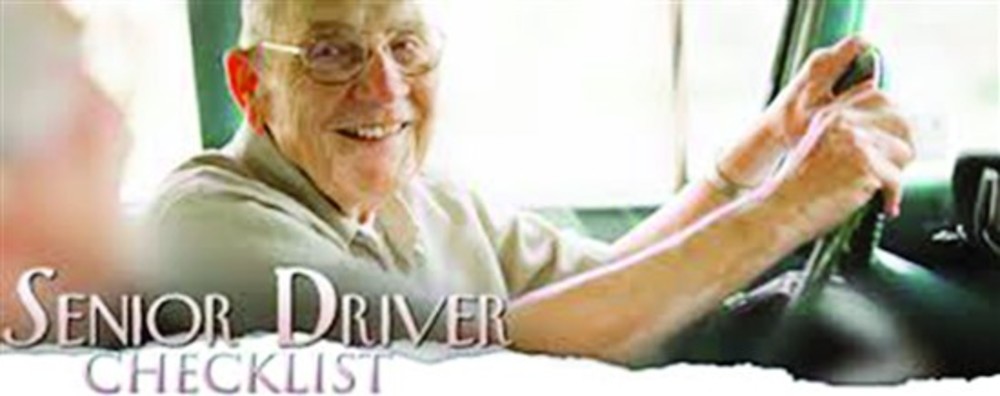Driving into old age: How to stay safe

As a geriatric social worker, I am often asked how to speak to an aging loved one about driving and when it is time to limit or stop a senior from driving.
My great-aunt Mae would have called this a “touchy subject.” When and how we talk to our aging loved ones about their ability to drive may make a big difference in how they respond to our concerns. Mae would say, “If you have concerns about someone who is drinking too much or is ignoring a health concern, you have to approach it from their point of view.” Showing empathy regarding the loss of independence or fear of becoming isolated is very important if you want them to listen to your concerns. Being able to offer alternative ways to get around by using public or senior transportation services, cabs or through friends and family will help to make the decision more palatable.
When is it time to hang up the car keys for good?
Age is certainly not the only indicator. We all know someone in their 90s who is in great health and cognitively sharp. If their vision and reflexes are good, there are no definite reasons for them to stop driving. Conversely, I’ve known folks in their early 70s whose diminished vision, cognitive abilities or mobility put them at much higher risk of having a car accident. Other factors, including medications such as sleeping pills, narcotics and anti-anxiety drugs could impair one’s ability to operate a vehicle.
What are some of the signs that indicate it is no longer safe
to drive?
Dr. Gary J. Kennedy, a geriatric psychiatrist and director of the Division of Geriatric Psychiatry at Montefiore Medical Center in New York City, sites six signs that it is time to stop driving.
• Running stop signs or red lights.
• Stopping at green lights or when there is no stop sign.
• Getting confused at traffic signals.
• Getting lost and calling family members for directions.
• Having accidents or sideswiping other cars when parking.
• Hearing from friends and family who are concerned about a senior’s driving.
If those indicators are not present, but you still have concerns about the senior’s ability to drive, what can you do?
AARPDriverSafety.org offers an on-line smart driver refresher course. Topics include the safest way to change lanes and make turns at intersections, how to maintain proper following distance, why we need to reduce distractions and the effect of medications on driving. Some states offer insurance discounts to those who complete the course. If you feel your loved one needs to have a road assessment, there are many programs offered throughout Rhode Island. The Point, a resource for seniors and adults with disabilities, keeps an updated list of these driver safety programs and can be reached at 401-462-4444.
What are some common sense ways for seniors to limit their risk for accidents?
Kennedy lists the following restrictions as an alternative for those who are still able to drive safely but are at an advanced age.
• Drive only in familiar places.
• Stay off expressways.
• Drive only within a certain radius of home.
• Avoid driving at night and in bad weather.
• Limit distractions by turning off the radio, avoiding conversations with passengers, and not using cellphones while driving.
Finally, what can you do if your loved one is not willing to accept that he/she should limit or give up driving?
This is when great-aunt Mae’s “touchy subject” becomes a potentially ugly subject. If you have tried to be empathetic to their feelings of loss and isolation and given them resources for alternative ways of getting around, and they still won’t budge, I have suggested that families enlist the help of the primary care physician. Not only could the patient’s driving put the patient’s safety at risk, but it could pose a public safety risk as well.
The National Highway Traffic Safety Administration provides reporting procedures for physicians who diagnose a mental or physical condition which will significantly impair the individual’s ability to drive safely. As a last resort, the physician can report the senior’s name and contact information to the medical advisory board within the DMV. This board would then decide whether to revoke the senior’s driver’s license.
Transitioning from being the driver to the passenger is not easy, but with the support of family and friends and other transportation options, you will still be able to get out and stay active.
To find out more about public transportation options, visit the Division of Elderly Affairs website at dea.ri.gov or call the Point at 401-462-4444.
PATRICIA HARWOOD, LICSW, is director of Older Adult Resources at Jewish Family Service. She can reached at patty@jfsri.org.







